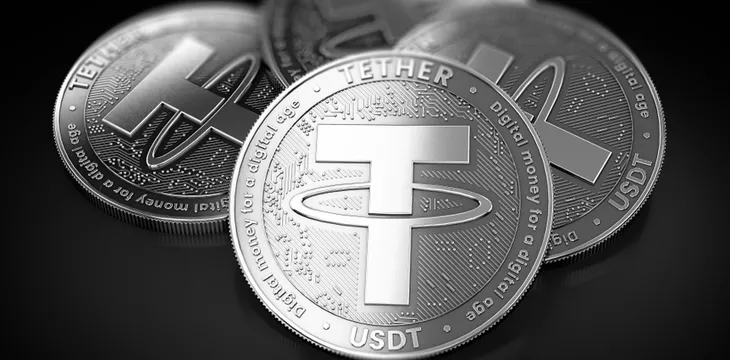|
Getting your Trinity Audio player ready...
|
Tether and its USDT stablecoin has been in the news a lot lately. There have been concerns that the digital currency is no longer backed completely by U.S. dollars, as was originally promised, and the company has come under fire for some possible shady deals with long-time partner Bitfinex that may have helped the cryptocurrency exchange cover up a loss of $850 million. After a report surfaced in March that the USDT was no longer backed by the U.S. dollar, things really started to get shaky and allegations that Tether has been nothing more than a scam coin are gaining strength. Now, even the company’s own lawyers acknowledge that USDT is not completely backed by dollars.
According to documents released on Tuesday, Tether only has enough cash on hand to back three-fourths of the supply of USDT. This should be causing alarm bells to wail and investors to scramble, given that the entire premise behind Tether’s offering was that each USDT would be backed by a U.S. dollar on a one-to-one basis. If this isn’t the case, there is obviously something very wrong happening at the company.
According to Zoe Phillips of the Morgan Lewis law firm, “… Tether’s reserves of cash and cash equivalents alone (without the line of credit) would cover approximately 74 percent of the outstanding amount of tether.” Morgan Lewis is one of two law firms, along with Steptoe & Johnson LLP, representing Bitfinex and Tether in a lawsuit initiated by the New York State Attorney General’s Office.
Phillips doesn’t believe there’s a problem with the situation, even though it could be considered a breach in one of a number of security regulations. She explains, “This sort of ‘fractional’ reserving arrangement is similar to how commercial banks work. No bank holds in liquid cash more than a small percentage of depositors’ money. The funds are invested. The markets clearly remain confident in tether, as it currently trades just shy of $1 dollar per U.S. Dollar tether—even after the Attorney General’s highly inflammatory and misleading public application. Any suggestion that tether holders face liquidity risk is unsupported speculation.”
The difference is, banks don’t make claims to hold liquid cash equal to deposits, nor do they refuse to allow audits of their holdings.
Tether backs should run—run fast and run far.

 07-02-2025
07-02-2025 





